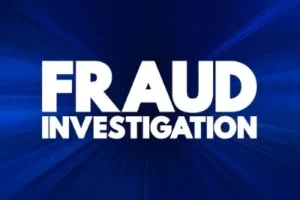Understanding Securities Class Action Lawsuits
Securities class action lawsuits serve as a crucial mechanism for investors to seek justice when corporate fraud occurs. These lawsuits allow a group of shareholders, often referred to as a class, to collectively bring a claim against a company or its executives for misleading statements or fraudulent activities that have resulted in financial losses. The collective nature of these lawsuits not only empowers individual investors but also acts as a deterrent against corporate misconduct.
The Mechanism of Class Actions
In a securities class action, shareholders must demonstrate that they collectively suffered losses due to the alleged fraud. This typically involves proving that the company made false or misleading statements that inflated its stock price, leading to significant losses when the truth was revealed. The process is designed to streamline litigation, allowing investors to pool their resources and share the costs associated with legal proceedings.
- Collective Action: By banding together, shareholders can afford legal representation that might be prohibitively expensive for individual investors.
- Efficiency: Class actions reduce the burden on the court system by consolidating numerous claims into a single lawsuit, which can lead to quicker resolutions.
The Role of Legal Precedents

Legal precedents play a significant role in shaping the landscape of securities class actions. Landmark cases, such as Basic Inc. v. Levinson, established the foundation for the “fraud-on-the-market” theory, which presumes that investors rely on the integrity of the market price when making investment decisions. This presumption simplifies the process for plaintiffs, as they do not need to prove individual reliance on specific misstatements.
- Fraud-on-the-Market Theory: This theory posits that the market price of a security reflects all publicly available information, including any fraudulent statements made by the company.
- Impact of Precedents: Subsequent rulings, such as Halliburton II, have further refined the standards for class certification and the ability of defendants to rebut the presumption of reliance.
The Deterrent Effect of Class Actions
Securities class action lawsuits serve a dual purpose: they provide a mechanism for victim compensation and act as a deterrent against future fraud. The potential for significant financial penalties encourages companies to maintain transparency and adhere to ethical practices.
Financial Consequences for Corporations

When companies face class action lawsuits, the financial implications can be severe. Settlements often involve substantial payouts, which can impact a company’s stock price and overall market reputation. The fear of litigation can compel corporations to adopt more stringent compliance measures to avoid potential fraud.
- Settlement Costs: Companies may opt to settle to avoid the uncertainties and costs associated with prolonged litigation.
- Reputational Damage: The mere existence of a class action can tarnish a company’s reputation, leading to a loss of consumer trust and investor confidence.
Encouraging Ethical Behavior
The threat of class action lawsuits encourages companies to prioritize ethical behavior and transparency. By holding corporations accountable for their actions, these lawsuits foster a culture of compliance and integrity within the business environment.
- Corporate Governance: Companies are more likely to implement robust governance structures to mitigate the risk of fraud.
- Investor Confidence: A transparent corporate culture enhances investor confidence, which is essential for the overall health of the financial markets.
The Impact of Fraud on the Market
Fraudulent activities not only harm individual investors but also have broader implications for the financial markets. When companies engage in deceptive practices, it undermines the integrity of the market and can lead to systemic risks.
Market Distortion
Fraudulent behavior distorts market prices, leading to misallocation of resources. Investors may make decisions based on inaccurate information, which can result in significant financial losses and a lack of trust in the market.
- Resource Allocation: When investors cannot rely on accurate information, capital may be directed toward poorly performing companies, hindering economic growth.
- Systemic Risk: Widespread fraud can lead to market instability, as seen during financial crises when trust in the system erodes.
Long-Term Consequences
The long-term consequences of corporate fraud extend beyond immediate financial losses. Companies that engage in fraudulent activities often face lasting reputational damage, which can affect their ability to attract investors and customers.
- Sustained Value Loss: Even after a lawsuit is resolved, companies may struggle to regain their previous market positions.
- Increased Cost of Capital: Firms with a history of fraud may face higher borrowing costs, as lenders perceive them as higher risk.
The Role of Institutional Investors

Institutional investors play a pivotal role in securities class actions. Their participation can significantly influence the outcome of lawsuits and the overall effectiveness of these legal mechanisms.
Advocacy for Shareholder Rights
Institutional investors, such as pension funds and mutual funds, often advocate for shareholder rights and actively participate in class action lawsuits. Their involvement can lead to more substantial settlements and increased accountability for corporations.
- Collective Power: Institutional investors can leverage their collective influence to push for reforms and better corporate governance practices.
- Resource Availability: With greater resources at their disposal, institutional investors can fund extensive legal research and analysis, enhancing the quality of the claims brought forth.
Impact on Corporate Behavior
The active participation of institutional investors in class actions can lead to changes in corporate behavior. Companies may be more inclined to adopt ethical practices and transparency measures when they know that institutional investors are monitoring their actions.
- Increased Scrutiny: Institutional investors often conduct thorough due diligence, which can deter companies from engaging in fraudulent activities.
- Long-Term Focus: Institutional investors typically prioritize long-term performance, encouraging companies to adopt sustainable business practices.
Challenges in Securities Class Actions
Despite their importance, securities class action lawsuits face several challenges that can hinder their effectiveness in deterring fraud.
High Barriers to Entry
The complexity of securities law and the high costs associated with litigation can deter individual investors from pursuing class actions. Many potential plaintiffs may lack the resources or knowledge to navigate the legal system effectively.
- Legal Costs: The expenses associated with filing a class action can be prohibitive, particularly for smaller investors.
- Knowledge Gap: Investors may not fully understand their rights or the legal processes involved in pursuing a class action.
The Future of Securities Class Actions
As the landscape of corporate governance continues to evolve, the role of securities class action lawsuits will likely adapt to meet new challenges and opportunities.
Legislative Reforms
Ongoing discussions about potential legislative reforms may shape the future of securities class actions. Policymakers are increasingly recognizing the need to balance the interests of investors with the need to foster a healthy business environment.
- Regulatory Changes: Proposed changes to securities laws may streamline the class action process and enhance protections for investors.
- Enhanced Transparency: Increased transparency requirements for corporations can help mitigate the risk of fraud and improve investor confidence.
Technological Advancements
The rise of technology and data analytics is transforming the way securities class actions are pursued. Advanced tools can help identify patterns of fraud and streamline the litigation process.
- Data-Driven Insights: Technology can provide valuable insights into market behavior, enabling investors to make more informed decisions.
- Efficient Litigation: Automation and data analysis can reduce the time and costs associated with class action lawsuits, making them more accessible to investors.
Conclusion
Securities class action lawsuits play a vital role in deterring corporate fraud and protecting the interests of investors. By providing a mechanism for collective action, these lawsuits empower shareholders to hold companies accountable for their actions. While challenges remain, the ongoing evolution of securities class actions, driven by legislative reforms and technological advancements, promises to enhance their effectiveness in promoting transparency and ethical behavior in the corporate world. As investors continue to advocate for their rights, the importance of these legal mechanisms will only grow, ensuring that corporate fraud is met with appropriate consequences.
Timothy L. Miles, Esq.
Law Offices of Timothy L. Miles
Tapestry at Brentwood Town Center
300 Centerview Dr. #247
Mailbox #1091
Brentwood,TN 37027
Phone: (855) Tim-MLaw (855-846-6529)
Email: [email protected]
Website: www.classactionlawyertn.com



